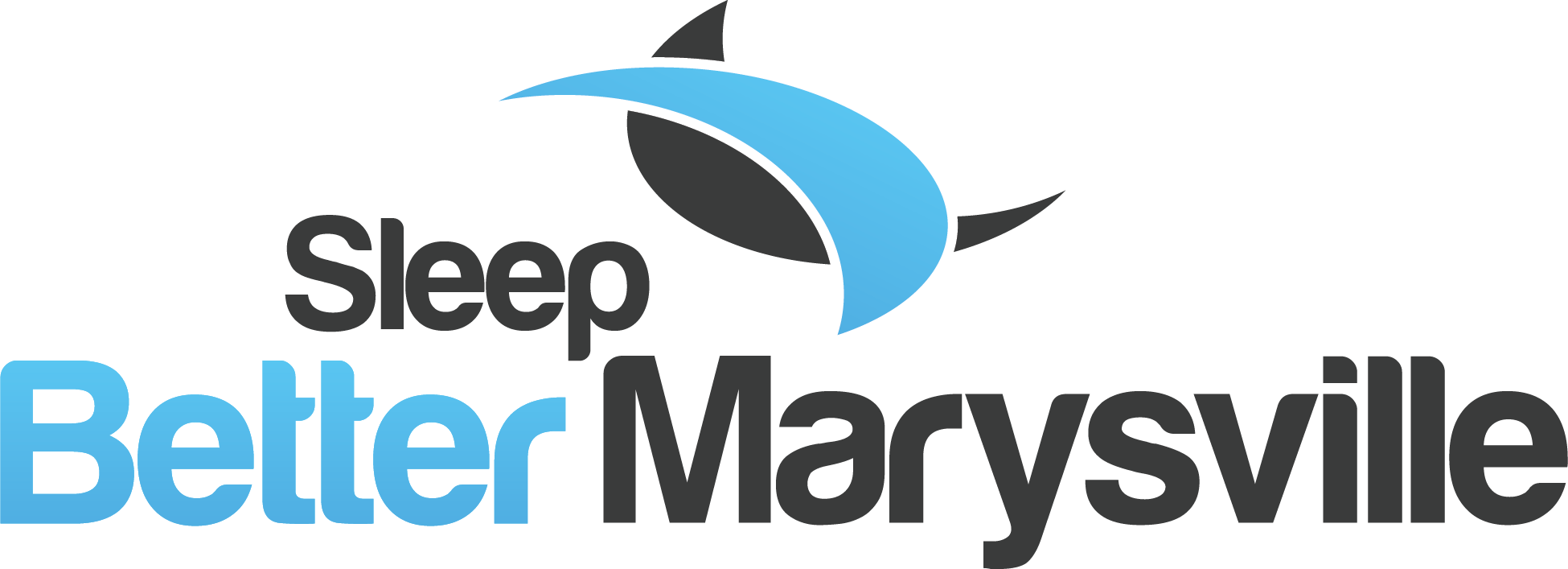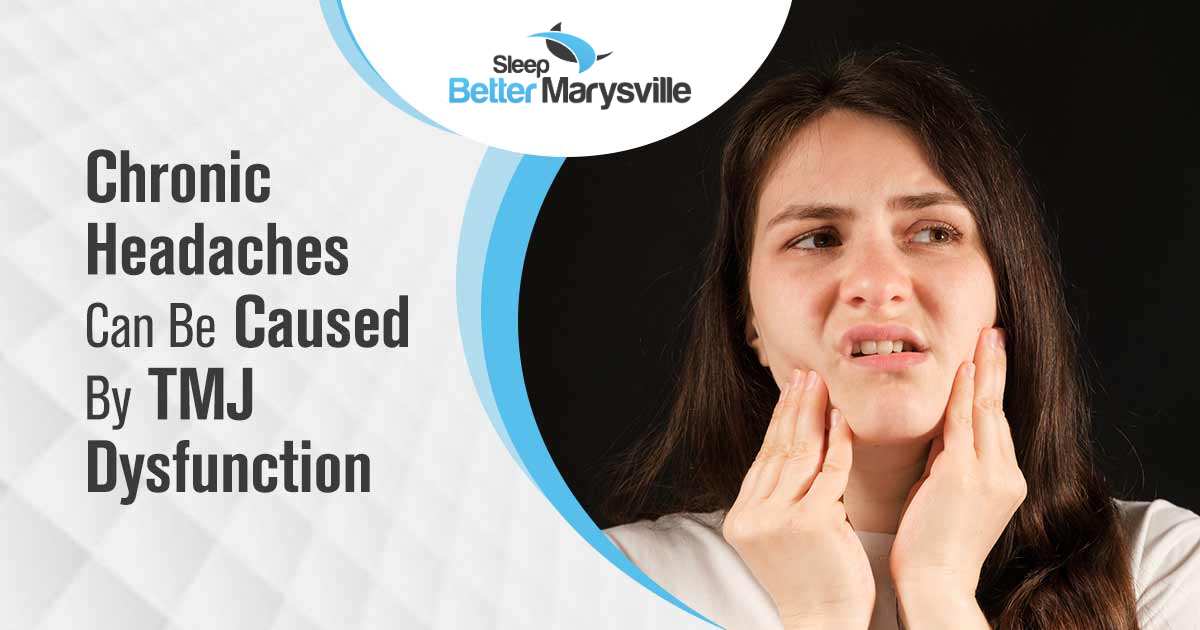The second-most common cause of chronic headaches is temporomandibular disorder (TMD), which is sometimes called TMJ dysfunction. These TMD headaches can greatly diminish quality of life. Thankfully, non-invasive treatment options can reduce or eliminate your chronic TMD headache.
What is a Temporomandibular Disorder?
A temporomandibular disorder (TMD) is a disorder of the temporomandibular joints, jaw, muscles, and nerves associated with chronic facial pain. TMD causes pain in the jaw joints and the muscles and ligaments controlling your jaw’s movement. Temporomandibular dysfunctions or disorders (TMD), can have a significant impact on your life by affecting your ability to chew, yawn, or speak easily.
Why Do Temporomandibular Disorders Cause Headaches?
Temporomandibular disorders cause headaches because the proximity of the jaw to the head means pain easily travels upward. The many nerves located near the temporomandibular joint contribute to the aches becoming more intense. The two primary reasons for a TMD headache are jaw tension and a misaligned bite.
Jaw tension is the most common cause of a temporomandibular disorder headache. Bruxism, the act of clenching your teeth, tires the muscles and joints surrounding the teeth, which causes joint pain and can wear down the teeth. Pain from the jaw travels up to the temples and can range from mild to severe. Grinding your teeth can also cause cramping of the jaw which can result in pulsating headaches that feel like migraines.
A misaligned bite puts strain on your jaw and is another common reason for a TMD headache. Trying to keep the jaw in proper positioning stresses and tires the tissues, including the facial muscles, surrounding the temporomandibular joint, and when this occurs, it causes a headache.
What are the Symptoms of a TMD Headache?
A TMD headache is pain in the head, face, and cheek caused by a temporomandibular joint disorder. The TMJ disorder causes pain in the temporomandibular joint, and that pain spreads upward to other parts of your head.
Frequent headaches can be symptomatic of TMJ issues. Common symptoms of TMD headaches may also include:
- achiness in your neck and/or shoulders
- atypical pain in your cheek muscles
- challenges with swallowing
- clicking or popping sounds when moving your jaw
- difficulty or pain when chewing food (more severe head pain may occur when chewing)
- inability to open your mouth fully
- migraine headaches
- pain over your eyes, in the ear area, or in the temples
- sore TMJ (jaw) hinges
- sensitive teeth, but no obvious dental problems
- swollen face
- tinnitus (ringing in the ears)
How is Temporomandibular Dysfunction Diagnosed?
Dentists, physiotherapists, or doctors can diagnose temporomandibular dysfunction (TMD) in a dental checkup or physical examination. They will assess your jaw’s range of motion when you open and close your mouth, feel the areas surrounding your temporomandibular (jaw) joints while you open and close your mouth, and press on your jaw and certain areas of your face to find areas of tenderness, pain, or discomfort.
They might also use imaging tests for a closer look at your temporomandibular joints and the structures surrounding them. The imaging tests might include a panoramic X-ray to assess your jaw and teeth, a CT (computed tomography) scan to get a more detailed view, and an MRI (magnetic resonance imaging) to assess the soft tissues that surround your temporomandibular joints.
Treating Temporomandibular Joint Disorders and TMD Headaches
The underlying cause of your temporomandibular joint disorder (TMJ) and the severity of your pain are two factors that are taken into consideration when determining the TMJ treatment that is right for you. Noninvasive options should be tried first. Treatment options can include home remedies, medications, self-managed care, and/or other nonsurgical treatments.
Home Remedies and Medications
Home remedies include eating soft foods, applying heat or cold packs to the affected area, and taking over-the-counter pain medications like ibuprofen, acetaminophen, or naproxen. Home remedies may help reduce the pain, but they are temporary solutions that won’t always resolve the problems long-term.
Sedatives and muscle relaxers can also help treat TMJ disorders. Sedatives can help you sleep more peacefully at night. Muscle relaxers relax the muscles in the area and are often paired with pain relievers that help with immediate pain.
Self-managed Care
Self-managed care treatment options include any activities you can do yourself. These activities might be learning all that you can about your type of temporomandibular joint disorder, identifying any activities that can contribute to TMD flare-ups, setting specific goals for managing your TMD, and learning relaxation techniques or meditation to reduce and/or eliminate any stress that could contribute to TMJ pain or lead to habits that cause TMJ pain (e.g., chewing on non-food items, clenching teeth, grinding teeth).
Other Nonsurgical Treatments for your TMD Headache and TMJ Pain
Additional nonsurgical treatment options like oral appliances and physical therapy do not involve medications. Oral appliances include bite guards that can be worn while you sleep or occasionally during the day, and wearing a dental splint or mouth guard to realign the jaw. Physical therapy for Aggressive Treatment Options for Severe TMD
For severe TMD, your dentist or doctor may suggest other more aggressive treatment options. Corticosteroid injections directly into the joint are often helpful. Arthrocentesis, a medical procedure during which the jaw joint is washed out with sterile fluid to rinse away any debris, may also provide relief. If these and other nonsurgical treatments are not effective, a surgical option may be suggested as a last resort. Surgical options are generally only used when there is something structurally wrong with the jaw joint of a patient who has a temporomandibular disorder.

